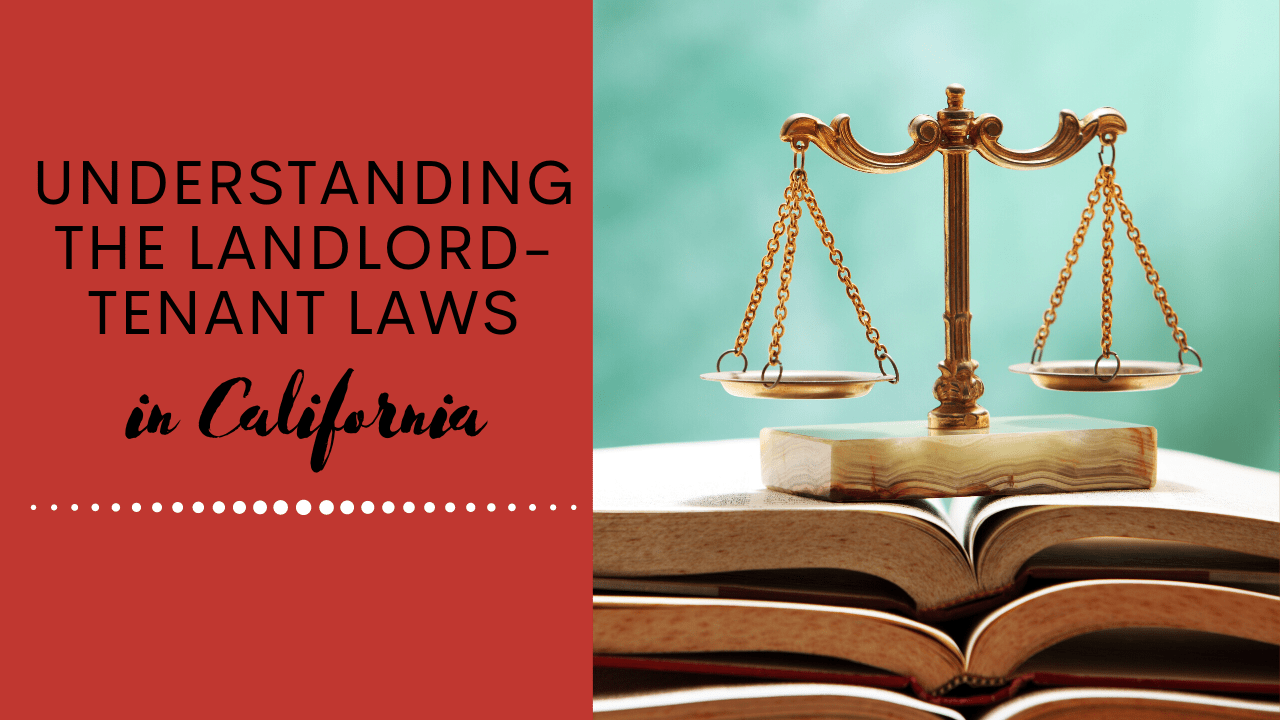
Understanding the landlord and tenant laws in California is critical if you’re going to rent out a property in Santa Rosa. The problem is that these laws change all the time. This year alone, we have implemented new rent control and just cause eviction laws. There are new requirements for accepting applications for Section 8 tenants and in cities like Oakland, landlords can no longer run a criminal background check prior to screening an application.
These are just the new laws. There are also existing laws pertaining to security deposits, fair housing, and habitability. Staying up to date on the laws pertaining to your rental property could be a full-time job. It’s a great reason to work with a professional Santa Rosa property management company.
Today, we’re providing a highlight of the most urgent laws that you need to know before renting out a home.
New California Rental Laws: Rent Control and Eviction
Statewide rent control went into effect on January 1, 2020, limiting the amount that many landlords can raise rent from year to year. There are a number of exceptions in this bill, so if you’re an individual landlord renting out one single-family home, for example, the restrictions will not apply to you. However, if you’re renting out a multi-family property and it’s more than 15 years old, you’ll need to limit your rental increases to five percent plus the cost of living increase set by the Consumer Price Index. There are a lot of nuances and whether your property is covered by the rent control law or not, you’ll need to communicate with your tenants and change the language in your lease agreement.
Evictions have also changed. You can still evict tenants with cause, meaning if they stop paying rent or violate the terms of your lease agreement, you should go ahead and evict them. But, if you simply don’t want to renew the lease or you have other plans for the property that requires you to remove them from the home, you’ll be required to pay a relocation fee that’s equivalent to one month’s rent.
Screening Tenants and Section 8
Another new law that Santa Rosa landlords need to be aware of pertains to how you market your home and screen your tenants. In the past, you could actively advertise that you did not accept Section 8 tenants for a property. You cannot do that anymore. When you’re screening tenants, you need to consider Section 8 applicants. All of your screening criteria can remain the same, but when it comes to your income standards, you have to consider a housing voucher as part of an applicant’s income. You cannot deny a Section 8 tenant if all their other qualifications meet your criteria.
Fair Housing Laws and Discrimination
The federal, state, and local fair housing laws require that you treat all applicants and tenants fairly and consistently. You cannot discriminate based on race, color, religion, national origin, sex, familial status, disability, sexual orientation, and income source. There are a few hot topics in the fair housing and discrimination space when it comes to how landlords rent out their homes. The first is disparate impact and criminal backgrounds. Some communities are preventing you from using criminal history when you’re screening tenants. Disparate impact laws protect applicants from classes that have historically been discriminated against.
There’s also the matter of emotional support animals, therapy animals, and service animals. While each of those animals are in their own class and come with different certifications and requirements, they are all the same in that they are not legally considered pets. If you deny a tenant with an emotional support animal because you have a no-pet policy, you’re going to find yourself in some expensive legal trouble.
California Security Deposit Laws
 Security deposit laws are also important, mostly because it’s one area where landlords make a lot of mistakes. There are limits to how much you can collect in a security deposit, but the real trouble seems to come with the way a security deposit is returned. You have 21 days after a tenant moves out to return the security deposit and/or an itemized accounting of why money was withheld and what it’s being used for.
Security deposit laws are also important, mostly because it’s one area where landlords make a lot of mistakes. There are limits to how much you can collect in a security deposit, but the real trouble seems to come with the way a security deposit is returned. You have 21 days after a tenant moves out to return the security deposit and/or an itemized accounting of why money was withheld and what it’s being used for.
There are frequent disputes between what should be considered tenant damage and what should be considered normal wear and tear. Your move-in inspections and move-out inspections need to be well-documented. You are legally required to walk through the property with your tenants before they move out to give them an indication of what you might deduct. If you lose a security deposit lawsuit, you can be accountable for paying the tenants three times the amount of the initial deposit.
Renting out a home in Santa Rosa is an excellent financial opportunity, but as you see, it also comes with a lot of risk and liability. The legal landscape in California is complex and always changing. Don’t put yourself at risk for making an expensive legal mistake. Professional Santa Rosa property management is critical.
We’re here to help. Contact us at Redwood Residential Property Management for more information.




 Graduate of Empire Business School, Santa Rosa in 1998 with an AA degree in Office Administration. Lorena has over 30 years of experience in office administration. From the California State Legislature to North Bay Realtors Association and most recently with Sue Carrell & Associates.
Graduate of Empire Business School, Santa Rosa in 1998 with an AA degree in Office Administration. Lorena has over 30 years of experience in office administration. From the California State Legislature to North Bay Realtors Association and most recently with Sue Carrell & Associates.